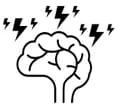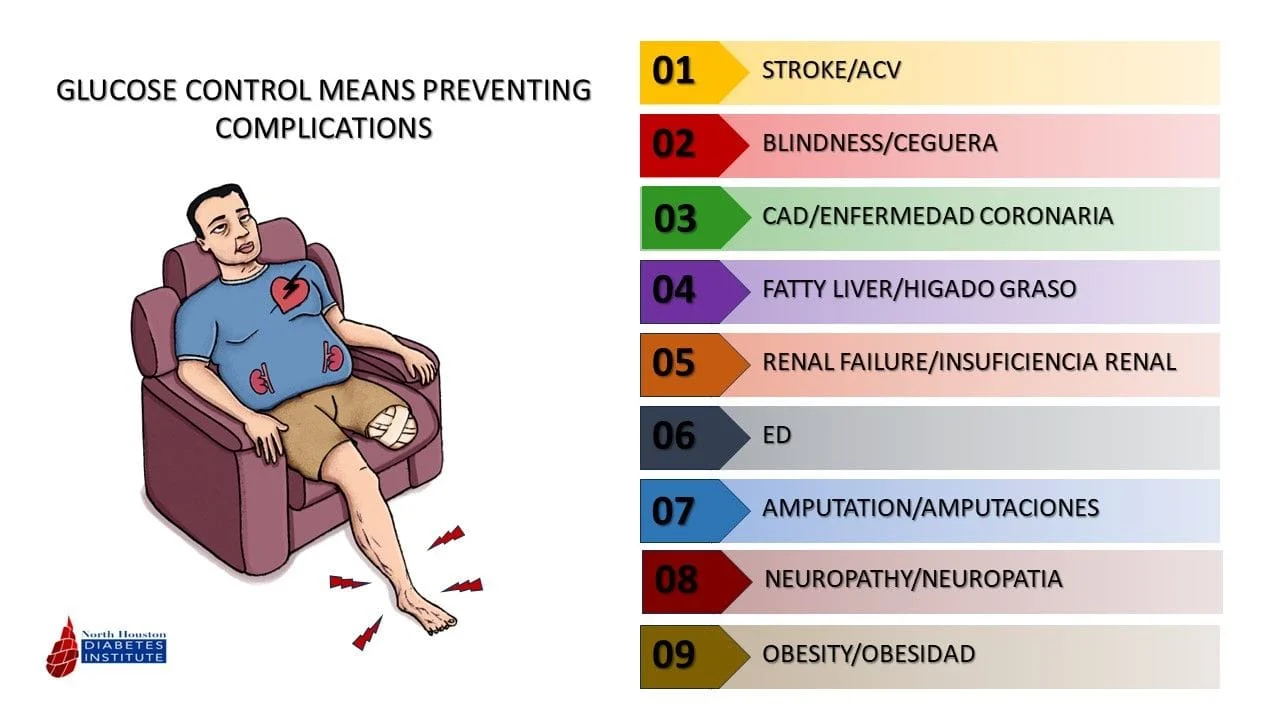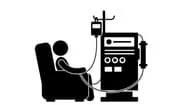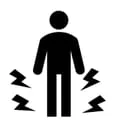CORONARY ARTERY DISEASE

Coronary Artery disease is the name given to the condition that causes a heart attack. It is caused by plaque (cholesterol deposits) buildup in the wall of the arteries that supply blood to the heart (called coronary arteries) causing the arteries to narrow. People with diabetes will have more frequent heart attacks, more complications and higher risk of death at younger age than non-diabetics. The risk can be reduced by maintaining good glucose control.
STROKE

A stroke or Cerebro-Vascular Accident is a condition in which one part of the brain will die because it did not receive blood supply. Diabetics poorly controlled have increased risk of developing a stroke. People who suffer strokes may not be able to speak, they may not be able to smile even if they are happy, or sometimes they can no longer eat solid food because they are unable to swallow safely. Depending on the region of the brain affected the disability may be severe and the person may need care with day-to-day activities such as eating and using the bathroom.
PERIPHERAL VASCULAR DISEASE (PVD)

Peripheral vascular disease is a slow and progressive blood circulation disorder. Narrowing, blockage, or spasms in a blood vessel can cause PVD. It may affect any blood vessel outside of the heart including the arteries to the brain or legs. Organs supplied by these vessels, may not get enough blood flow for proper function. Plaque reduces the amount of blood flow to the limbs. It also decreases the oxygen and nutrients available to the tissue. People with coronary artery disease (CAD) often also have PVD
END STAGE RENAL DISEASE
Diabetes is one of the most important causes for loss of kidney function that requires dialysis. Kidney failure is the last stage of long-term (chronic) kidney disease. Many people can have kidney disease and keep a normal life but if Diabetes is not controlled, kidney disease will progress until the kidneys can no longer support the body’s needs. Usually, dialysis will be started when only 10% to 15% of kidney function is left. Hemodialysis (and other types of dialysis) does some of the job of the kidneys when they stop functioning correctly. It removes extra salt, water, and waste products so they do not build up in the body; keep safe levels of minerals and vitamins in the body; help control blood pressure; help produce red blood cells. The kidneys’ main job is to remove toxins and extra fluid from the blood. If waste products build up in the body, it can be dangerous and even cause death
NERVE DAMAGE
Diabetes also affects the nerves. Some nerves will be damage to the point that they will send a pain signal to the brain with no reason. It is called Neuropathy. The pain is more common in the legs. Some patient report “pins and needles”, some of them describe it as numbness or heat that is very uncomfortable, and other will report just plain aches. The pain is very difficult to treat. In many cases the quality of life of the patient is compromised.
BLINDNESS
Poorly controlled Diabetes results in significant growth of the vessels in the back of the eye. It is called proliferative retinopathy. Unfortunately, those vessels do not have support and they may break and bleed producing hemorrhages. In other cases, they will produce aneurysms or abnormal dilation of the vessel. When the damage to the retina is serious enough, vision is compromised and eventually lost.




